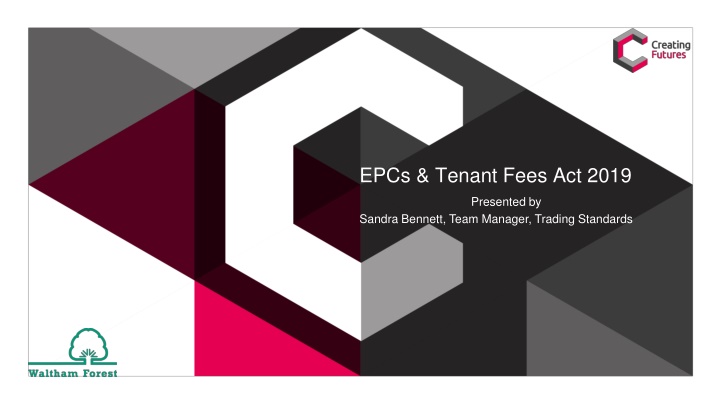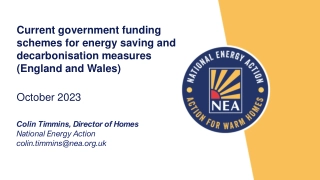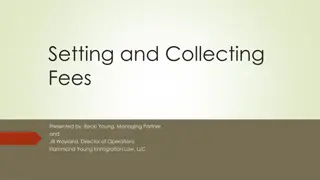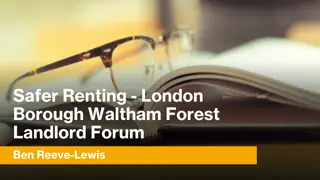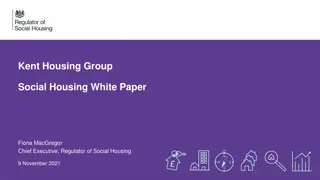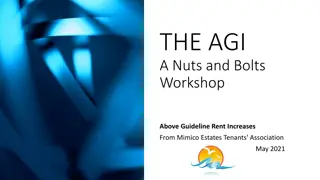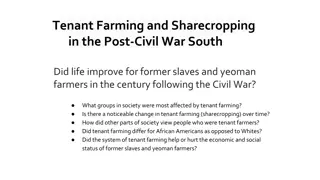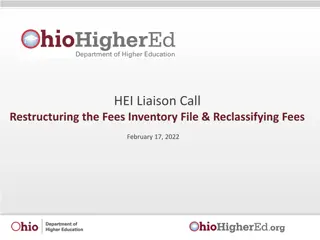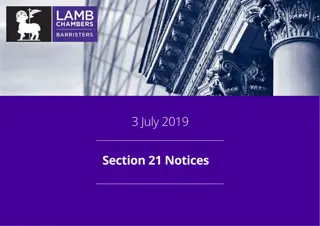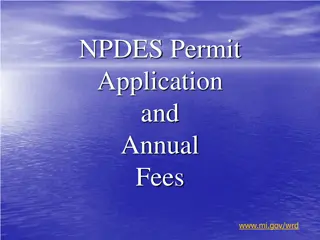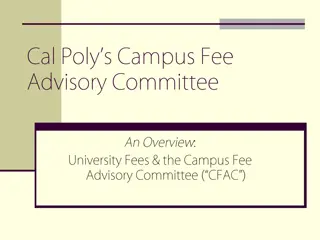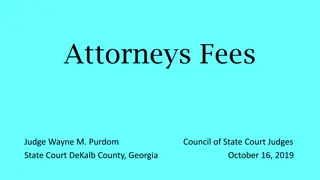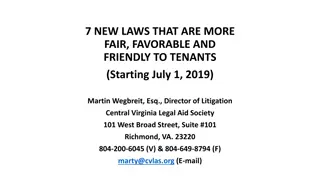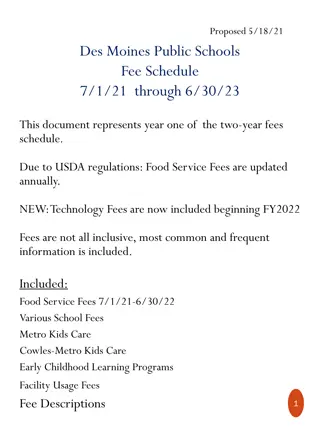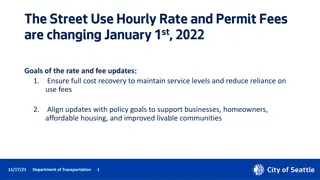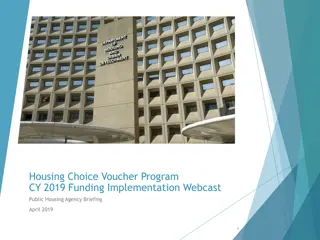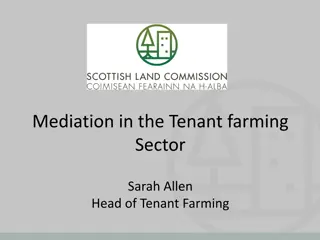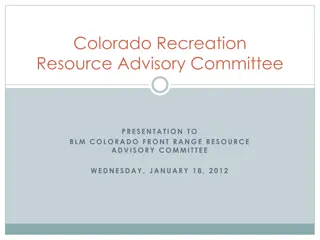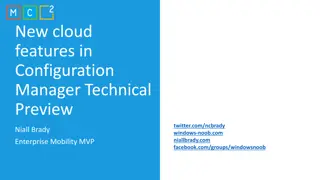Overview of EPCs & Tenant Fees Act 2019
Learn about Energy Performance Certificates (EPCs), the Minimum Energy Efficiency Standards (MEES) Regulations, collaborative efforts to combat climate change, enforcement actions, and penalties for breaching regulations pertaining to rented properties in Waltham Forest.
Download Presentation

Please find below an Image/Link to download the presentation.
The content on the website is provided AS IS for your information and personal use only. It may not be sold, licensed, or shared on other websites without obtaining consent from the author.If you encounter any issues during the download, it is possible that the publisher has removed the file from their server.
You are allowed to download the files provided on this website for personal or commercial use, subject to the condition that they are used lawfully. All files are the property of their respective owners.
The content on the website is provided AS IS for your information and personal use only. It may not be sold, licensed, or shared on other websites without obtaining consent from the author.
E N D
Presentation Transcript
EPCs & Tenant Fees Act 2019 Presented by Sandra Bennett, Team Manager, Trading Standards
Minimum Energy Efficiency Standards Regs. Minimum Energy Efficiency Standard (MEES) Regulations set a minimum energy efficiency level for private rented properties both domestic and non-domestic properties. The minimum Energy Performance Certificate (EPC) rating is level E . There is a complex system of exemptions. In Waltham Forest, the legislation is being enforced by Trading Standards. 2
Energy Performance Certificates or EPCs An Energy Performance Certificate (EPC) is a report that assesses the energy efficiency of a property and recommends specific ways in which the efficiency of your property could be improved. An EPC contains: information about a property s energy use and typical energy costs recommendations about how to reduce energy use and save money An EPC gives a property an energy efficiency rating from A (most efficient) to G (least efficient) and is valid for 10 years 3
Working Together to Combat Climate Change Waltham Forest is working in partnership with HEET to provide funding to improve properties. We are signposting landlords to this and other funds and hope landlords will apply for available funding. We hope that a collaborative approach will limit the scale of enforcement for the local authority and prevent new sub-standard lets appearing in the private rented sector. Landlords can check EPCs by using the online EPC Register on the .Gov website. 4
Enforcement Action - Compliance Notices If the Local Authority believes a landlord may be in breach, they may serve a compliance notice requesting information to help them decide whether a breach has occurred. A compliance notice can be served up to 12 months after a suspected breach occurred. A compliance notice may request information on: The EPC that was valid for the time when the property was let The tenancy agreement used for letting the property Information on energy efficiency improvements made Any Energy Advice Report in relation to the property Any other relevant document - - - - - 5
Breach of the Regulations If a local authority confirms that a property is (or has been) let in breach of the Regulations, they may serve a financial penalty up to 18 months after the breach and/or publish details of the breach for at least 12 months. The maximum penalties amounts apply per property and per breach of the Regulations. They are: up to 2,000 and/or publication penalty for renting out a non-compliant property for less than 3 months up to 4,000 and/or publication penalty for renting out a non-compliant property for 3 months or more up to 1,000 and/or publication for providing false or misleading information on the PRS Exemptions Register up to 2,000 and/or publication for failure to comply with a compliance notice The maximum amount you can be fined per property is 5,000 in total. 6
Tenant Fees Act 2019 (TFA) Came into force on 1 June 2019 Applies to all new tenancy agreements an assured shorthold tenancy; or licences to occupy housing. Guidance published on gov.uk 7
TFA - Permitted Payments allowed a) The Rent; b) Refundable Tenancy Deposit - capped at 5 weeks rent; c) Refundable holding deposit (to reserve a property) capped at 1 week s rent; d) Payments to change the tenancy when requested by the tenant, capped at 50, or reasonable costs incurred if higher; e) Payments associated with early termination of the tenancy, when requested by the tenant; f) A default fee for replacement of a lost key/security device or for a late payment of rent, where required under a tenancy agreement; and g) Payments in respect of utilities, IT services, TV licence and council tax. 8
TFA 2019 What is a Prohibited Payment? Charging for a Guarantee Form Credit checks Inventories Cleaning services Referencing Professional cleaning Admin charges Requirements to have specific insurance providers Gardening services 9
Tenant Fees Act 2019 (continued) Responsibility for enforcement lies with local authorities (Trading Standards) Penalties for o Charging a prohibited payment o Breaching transparency requirements Appeals to the First Tier Tribunal 10
TFA - Penalties A breach of the legislation will usually be a civil offence with a financial penalty of up to 5,000 per breach, but if a further breach is committed within 5 years this will be a criminal offence or a fine up to 30,000. The penalty for the criminal offence, which can include a banning order offence under the Housing and Planning Act 2016, is an unlimited fine. A complaint from a renter is needed for enforcement. 11
Further information THANK YOU FOR LISTENING For further information Email: tradingstandards@walthamforest.gov.uk 12
